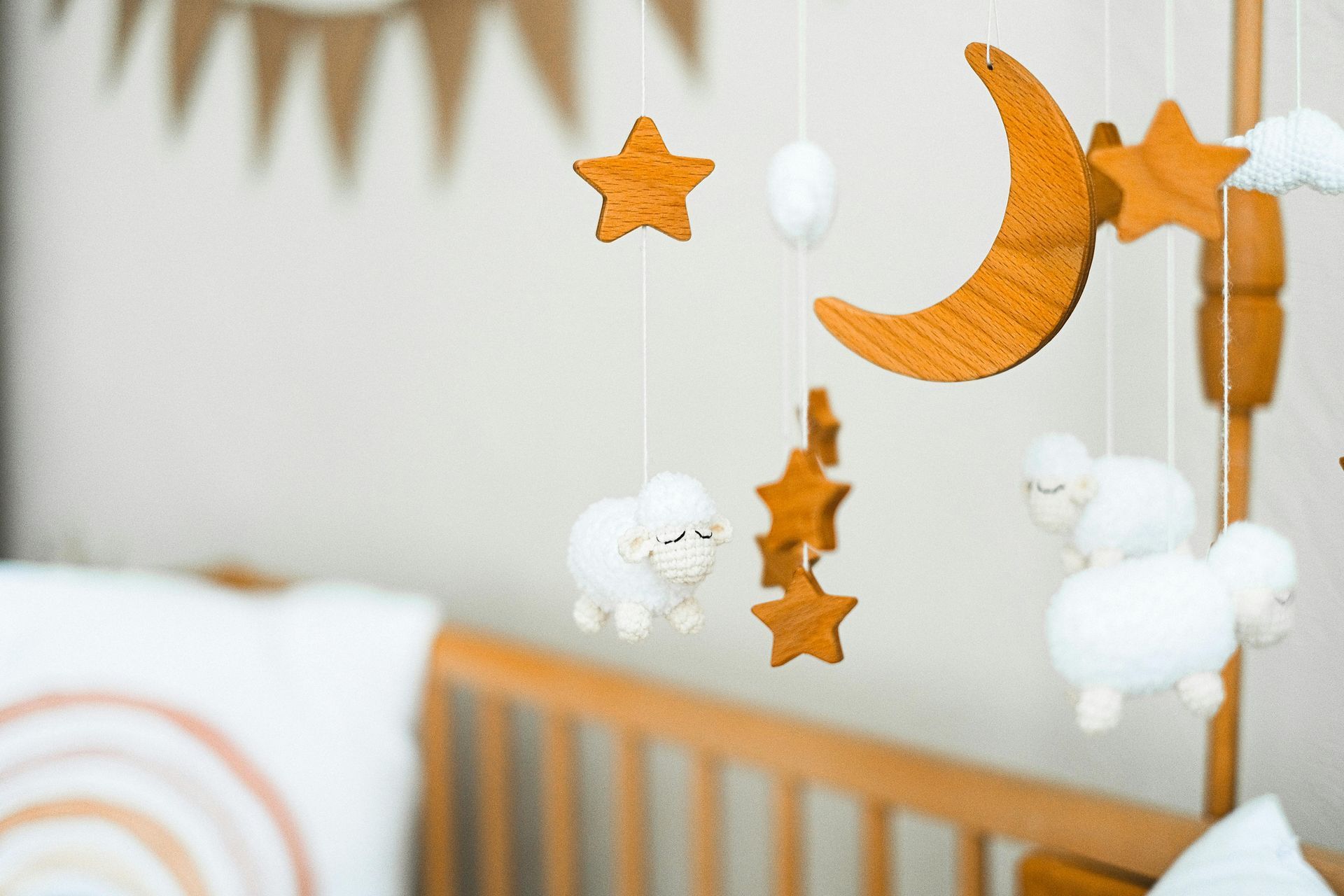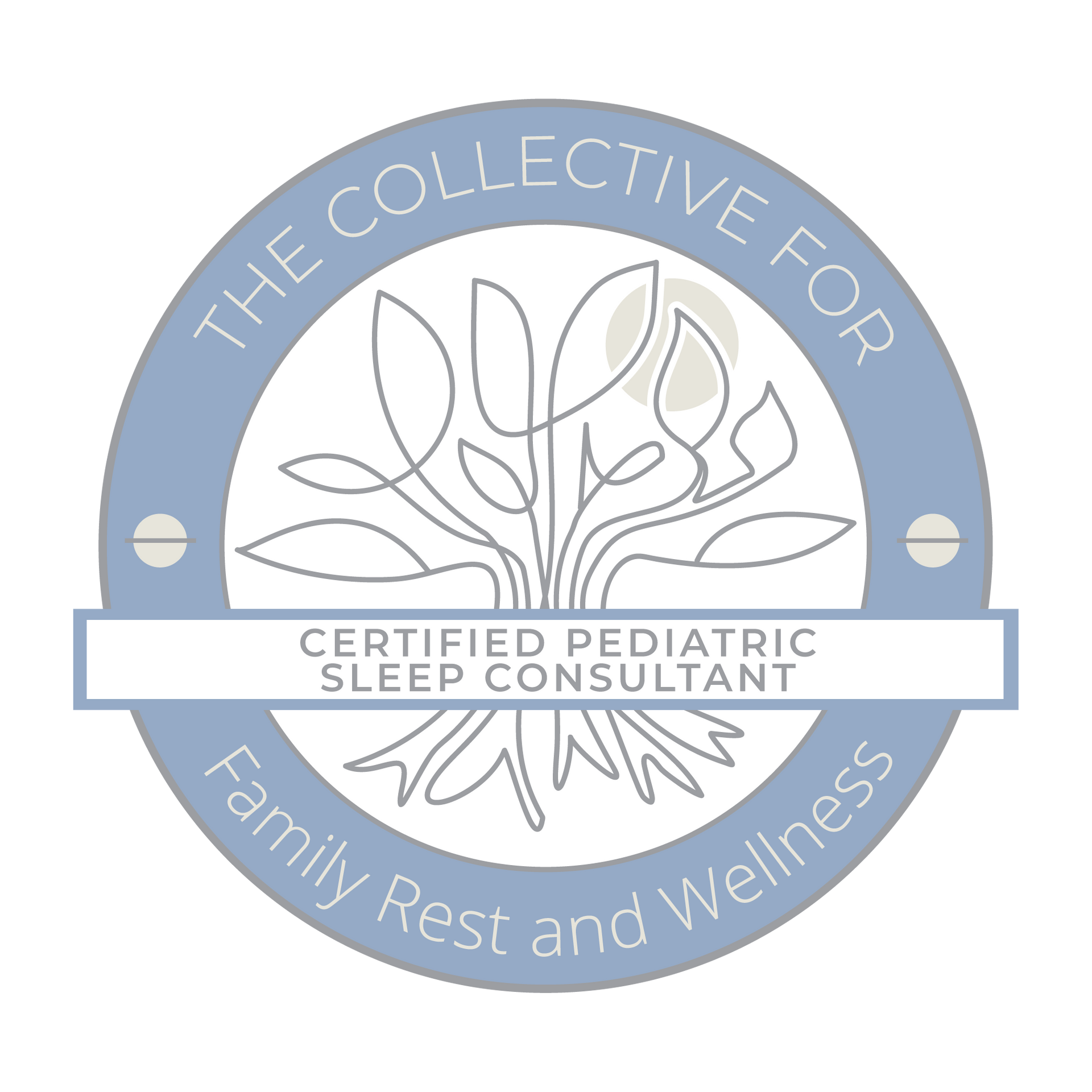Navigating Sick Season: How To Help Your Sick Baby Sleep
As we quickly approach Winter and the cold/flu season we will all inevitably end up sick with sick children. It isn't until we are in that situation that we think about our child's sleep while sick and how to navigate those times. If we are lucky, we stay healthy but still have to take care of a little one that isn't feeling (or sleeping) their best. You may be wondering a lot of things during this time like
- Should I let my sick baby sleep all day?
- How do I get my overtired and sick baby to sleep?
- Should I change my babies sleep environment to improve sleep while sick?
- Should I sleep close to my baby while they are sick to keep an eye on them?
It is totally normal to have these thoughts and questions racing through your brain as you try to navigate the world of a sick baby's sleep. Chances are that during this time you are also sick and everyone needs their rest! It could even be the first time your baby is sick and that can cause extra stress on any new parent. Luckily, there are things you can do and ways that you can adjust their sleep to help them stay on track and get the rest they need.
Let Your Baby Sleep as Long as they Need
During the course of your baby's illness you will likely find that the schedule and routine goes right out the window, and hear me when I say that THAT IS OKAY! When your baby is sick, they may need extra support to sleep. Your once independent sleeper isn't feeling their best and may need some extra snuggles to get to sleep and stay asleep and it is okay to veer from your normal routine to help them get the rest they need. A couple of days or even a week of extra sleep support is not going to ruin your good sleeper, and it is important to let any control around your sleep schedule to go to support your baby through their sickness! When a baby is sick and congested with a cough it is always worse for them when they are laying down trying to sleep on their back, which as we know is the safest position for newborns and infants until they are able to roll onto their stomachs or sides on their own. This makes it extra difficult for them to settle into sleep without being disturbed by a scratchy throat, constant nasal drips and coughing. Please avoid propping up your baby, placing them on their stomach or any other measures that could cause asphyxiation. There are other measures that you can take to make sure that your baby is set up for success when it comes to sleep while sick.
Help Your Baby's Cold/Flu Symptoms as Much as Possible
When your baby is sick, they often are struggling to clear their nasal passage and breathe properly. Helping them get rid of as much snot and congestion as possible will help keep their passages clear and get comfortable for sleep. I recommend using a Frida Baby Nose Aspirator to suck the snot out of their nose as often as possible leading up to naps and bedtime to keep their nose clear. Something else you can do is provide Tylonel (with your pediatricians permission) to lower any fever and help with any pain and discomfort that they may be feeling. You can also help clear the congestion with steamed showers and a cold air humidifier in their room that with help with breathing. Doing these things throughout the day will likely make your baby more comfortable and better able to sleep for naps and throughout the night.
Set Appropriate Expectations When it Comes to Your Baby's Sleep While Sick
Again, your baby isn't feeling well and it is going to be harder for them to settle in some cases and managing expectations can help your mental health as you move through the week and tackle sleep. Lean into this time where you can offer extra snuggles and support to your baby. If you find that your baby cannot settle into naps because they aren't feeling well or their cough is just too strong, try a contact nap. Often keeping them upright on your chest can help drain any congestion that is ailing them and can give them that much needed rest that they need to start healing and getting better. Once your child is feeling better, you can resume your typical sleep methods that rely less on your support for their sleep. But just remember, it is okay to accommodate their extra sleep needs during this time to get them the rest they need.
Yes, Let Your Sick Baby Sleep Longer During the Day
While I do typically advise that daytime sleep is capped at 2 hours during the day to preserve nighttime sleep, when a baby is sick they need more sleep than usual to heal and start to feel better. Letting your baby nap longer during the day Is fine as long as they are getting the proper feedings that they need throughout the day. If your baby Is not yet on solids and relying on bottle feedings or nursing, try and keep your feeding schedule the best you can. You want to make sure during this time that your baby isn't missing any feedings, but you can feed them and put them right back down if they are seeming lethargic. For older infants that are eating solids and have feedings that are more spread out, you can let them sleep for longer stretches if it is needed during this time they are sick. Just make sure they are well hydrated and you're getting whatever food into them that you can!
Should I Sleep Train When My Baby is Sick?
In short, no. You should not sleep train your baby while they are sick as they need extra sleep support during this time. Sleep training should only be conducted when a baby is healthy, not in a regression and within their normal sleep environment. If you are in the middle of sleep training when your baby is sick, you will want to press the pause button and continue once they are feeling better. Moving forward with sleep training when your little one doesn't feel good will not work and it will leave you and your baby stressed and in distress. Give your baby the sleep support they need during this time and restart on sleep training once they are feeling better.
Remember That it isn't Forever
It can be so frustrating when we are on track with sleep and then something like sickness, teething or another transition gets in the way. Just try and remind yourself that it won't be forever and that once you get through this, you have the tools you need to get your baby back on track! If you are struggling to return to better sleep once your child is feeling better, don't hesitate to reach out for help! I am happy to help your family on your way back to better rest.
The body content of your post goes here. To edit this text, click on it and delete this default text and start typing your own or paste your own from a different source.



